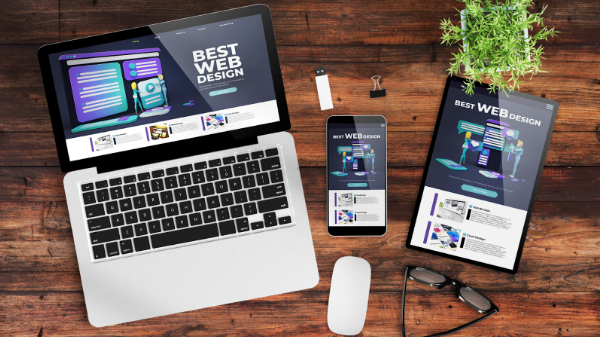Digitalization has reshaped the way people interact with online services. Over the past few years, mobile devices have overtaken desktops in terms of usage and functionality. This transformation is driven by the increasing need for flexibility, speed, and personalization in digital experiences. Businesses across various sectors are now prioritizing mobile-first solutions to meet growing consumer demand.
In the realm of online betting, the shift is particularly pronounced. Platforms such as 1xbet mobile have embraced a mobile-first approach, providing users with intuitive interfaces that deliver live updates and seamless wagering experiences. By focusing on mobile optimization, these services cater to the modern user who values on-the-go access without being tied to a fixed workstation.
The Rise of Mobile Dominance
Mobile devices offer unmatched convenience and accessibility. Unlike desktops, which require a stationary setup, smartphones and tablets enable users to interact with digital platforms anywhere and anytime. This freedom has led to a surge in mobile traffic, with more people accessing services through their devices than ever before.
Advancements in network speeds and device capabilities have further accelerated this trend. The performance of mobile apps now rivals that of traditional desktop applications. With a focus on streamlined design and efficient functionality, mobile platforms reduce load times and offer smoother user experiences. This shift is evident not only in social media and entertainment but also in industries like online banking and e-commerce.
Key Industries Driving the Mobile Shift
Several sectors are leading the move towards mobile-first solutions:
- Online Betting and Gaming:
The betting industry has rapidly adapted to mobile technology. Services like 1xBet mobile version provide comprehensive wagering options, including live betting and real-time odds updates. Mobile apps enable users to place bets instantly and monitor game progress without being restricted to a desktop environment. - E-commerce and Online Banking:
Consumers increasingly manage financial transactions and shopping through mobile applications. Mobile banking apps offer secure, quick access to account information and facilitate instant transactions. Similarly, e-commerce platforms are designed for easy navigation and rapid checkout processes on smaller screens. - Social Media and Content Consumption:
Social media usage is predominantly mobile-based. Applications like Instagram, TikTok, and YouTube have optimized interfaces that allow users to engage with content in a compact, accessible format. This trend has pushed traditional desktops to the background for everyday digital consumption.
Advantages of Mobile Over Desktop
Mobile platforms offer distinct benefits that contribute to their growing dominance:
- Push Notifications for Instant Engagement:
Mobile apps can send real-time alerts about promotions, updates, or live events, keeping users continuously engaged with the service. - Personalization Through AI Integration:
By leveraging artificial intelligence, mobile apps deliver tailored content and recommendations. This personalization enhances user satisfaction and efficiency, as the content is dynamically adjusted based on individual behavior. - Enhanced Security Features:
Modern mobile applications incorporate biometric authentication, two-factor verification, and data encryption. These advanced security measures foster user trust, making mobile solutions reliable for sensitive transactions. - Cost-Effectiveness and Operational Efficiency:
For businesses, maintaining a mobile-friendly platform is often more economical than developing and supporting a full-scale desktop system. Cloud computing and mobile development frameworks streamline the process, reducing both time and resource investments. - Offline Functionality:
Many mobile applications offer features that remain accessible without an active internet connection. This capability is a significant advantage over desktop versions that typically require continuous connectivity.
Future of Mobile-First Technology
The mobile-first trend is set to intensify as technology advances further. The rollout of 5G networks will provide faster data speeds and lower latency, enhancing real-time functionalities such as live betting and interactive streaming. Emerging device technologies, like foldable smartphones and improved battery systems, will also contribute to the mobile platform’s dominance.
Companies investing in mobile optimization are poised to gain a competitive edge. Adopting mobile-first strategies not only improves customer engagement but also ensures that businesses stay agile in a rapidly evolving digital landscape. Trusted resources such as the OWASP Mobile Security Project offer guidelines that help maintain robust security standards for mobile applications.
FAQ: Embracing the Mobile Revolution
Q: What makes mobile versions more attractive than desktop sites?
A: Mobile platforms offer greater flexibility, faster performance, and enhanced security features. They provide instant access to services anywhere, which is essential for modern users.
Q: How do mobile apps improve user engagement?
A: With features like push notifications, personalized recommendations through AI, and seamless live updates, mobile apps keep users continuously informed and engaged with the service.
Q: Why is the online betting industry shifting to mobile?
A: The betting industry benefits from the immediacy and interactivity of mobile apps. Platforms like 1xbet mobile enable users to place live bets and access real-time data, aligning with the fast-paced nature of sports and gaming events.
Q: What future trends can be expected in mobile technology?
A: Future trends include the widespread adoption of 5G, the emergence of foldable devices, enhanced AI-driven personalization, and even greater integration of security features. These advancements will further cement mobile platforms as the primary means of accessing digital services.
The transition from desktop to mobile is a key aspect of digital transformation. Businesses that embrace mobile-first solutions enhance user experiences, boost operational efficiency, and position themselves advantageously in a competitive market. As technology continues to evolve, mobile platforms will remain central to everyday digital interactions, redefining how users access and engage with online services.



